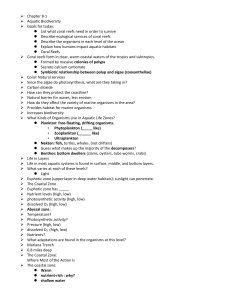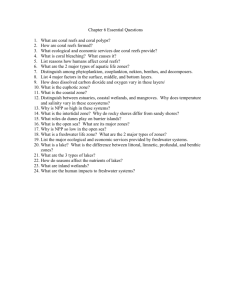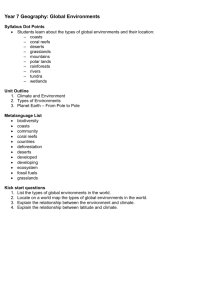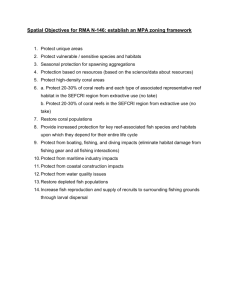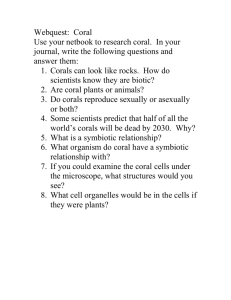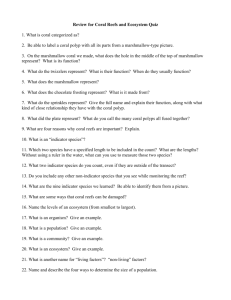Outcome of the World Ocean Conference and the Coral Triangle
advertisement
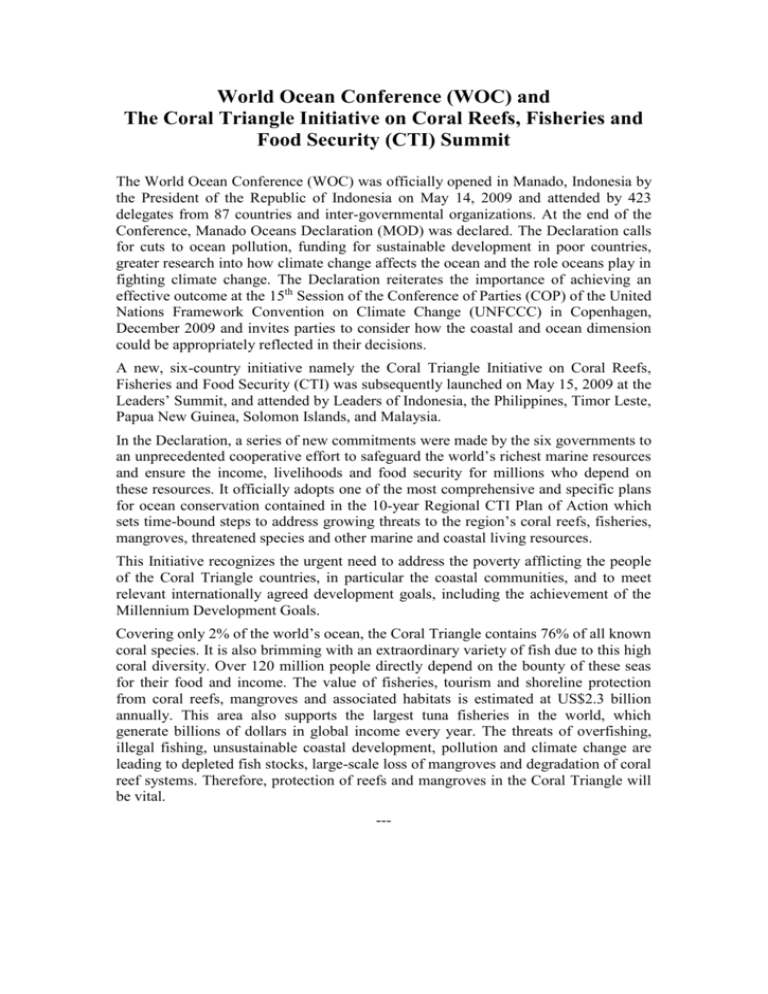
World Ocean Conference (WOC) and The Coral Triangle Initiative on Coral Reefs, Fisheries and Food Security (CTI) Summit The World Ocean Conference (WOC) was officially opened in Manado, Indonesia by the President of the Republic of Indonesia on May 14, 2009 and attended by 423 delegates from 87 countries and inter-governmental organizations. At the end of the Conference, Manado Oceans Declaration (MOD) was declared. The Declaration calls for cuts to ocean pollution, funding for sustainable development in poor countries, greater research into how climate change affects the ocean and the role oceans play in fighting climate change. The Declaration reiterates the importance of achieving an effective outcome at the 15th Session of the Conference of Parties (COP) of the United Nations Framework Convention on Climate Change (UNFCCC) in Copenhagen, December 2009 and invites parties to consider how the coastal and ocean dimension could be appropriately reflected in their decisions. A new, six-country initiative namely the Coral Triangle Initiative on Coral Reefs, Fisheries and Food Security (CTI) was subsequently launched on May 15, 2009 at the Leaders’ Summit, and attended by Leaders of Indonesia, the Philippines, Timor Leste, Papua New Guinea, Solomon Islands, and Malaysia. In the Declaration, a series of new commitments were made by the six governments to an unprecedented cooperative effort to safeguard the world’s richest marine resources and ensure the income, livelihoods and food security for millions who depend on these resources. It officially adopts one of the most comprehensive and specific plans for ocean conservation contained in the 10-year Regional CTI Plan of Action which sets time-bound steps to address growing threats to the region’s coral reefs, fisheries, mangroves, threatened species and other marine and coastal living resources. This Initiative recognizes the urgent need to address the poverty afflicting the people of the Coral Triangle countries, in particular the coastal communities, and to meet relevant internationally agreed development goals, including the achievement of the Millennium Development Goals. Covering only 2% of the world’s ocean, the Coral Triangle contains 76% of all known coral species. It is also brimming with an extraordinary variety of fish due to this high coral diversity. Over 120 million people directly depend on the bounty of these seas for their food and income. The value of fisheries, tourism and shoreline protection from coral reefs, mangroves and associated habitats is estimated at US$2.3 billion annually. This area also supports the largest tuna fisheries in the world, which generate billions of dollars in global income every year. The threats of overfishing, illegal fishing, unsustainable coastal development, pollution and climate change are leading to depleted fish stocks, large-scale loss of mangroves and degradation of coral reef systems. Therefore, protection of reefs and mangroves in the Coral Triangle will be vital. ---

